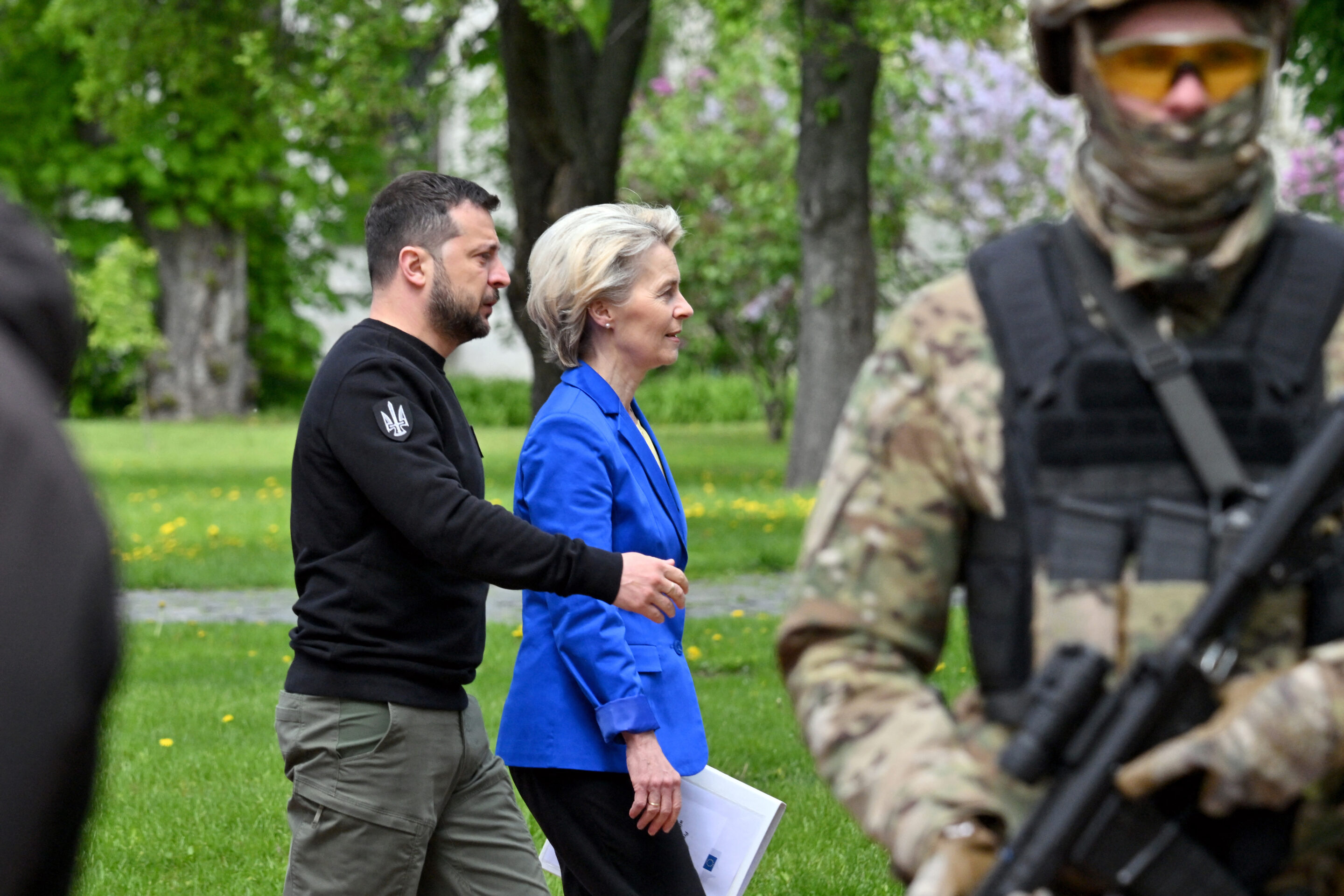The EU needs to not be "hostage to alien powers" when it comes to Ukraine’s accession, as frustration in Kyiv grows while it fights a battle on two fronts: against Russia and against corruption.
"Now it is our turn to ask Brussels how it is going," the Ukrainian MP leading the country's anti-corruption efforts Anastasiia Radina told The Brussels Times in an interview. "It is currently a task for the EU to make sure it is able to take internal decisions and not be a hostage to alien powers."
Ukraine is taking serious steps in its fight against domestic corruption, but the country’s leading anti-corruption MP is concerned that the current stalemate with EU integration has nothing to do with a lack of results on the Ukrainian side. "My perception, and this is the perception of the majority of Ukrainians, is that this EU member is using a completely artificial argument to simply block the progress of Ukraine."
Radina stresses that said country is blocking the EU’s decision to open negotiations while being in cahoots with Russian President Vladimir Putin.
"They are implementing a plan that has been coordinated outside the EU, specifically in the Kremlin," Radina continues. "It has everything to do with this one EU member deciding to blackmail Ukraine in coordination with a power outside the European Union."
The work of Anastasiia Radina, MP and chair of the anti-corruption committee in Ukraine’s parliament, the Verkhovna Rada, is a testament to the efforts the war-ravaged country is taking against corruption while sheltering from bombs.
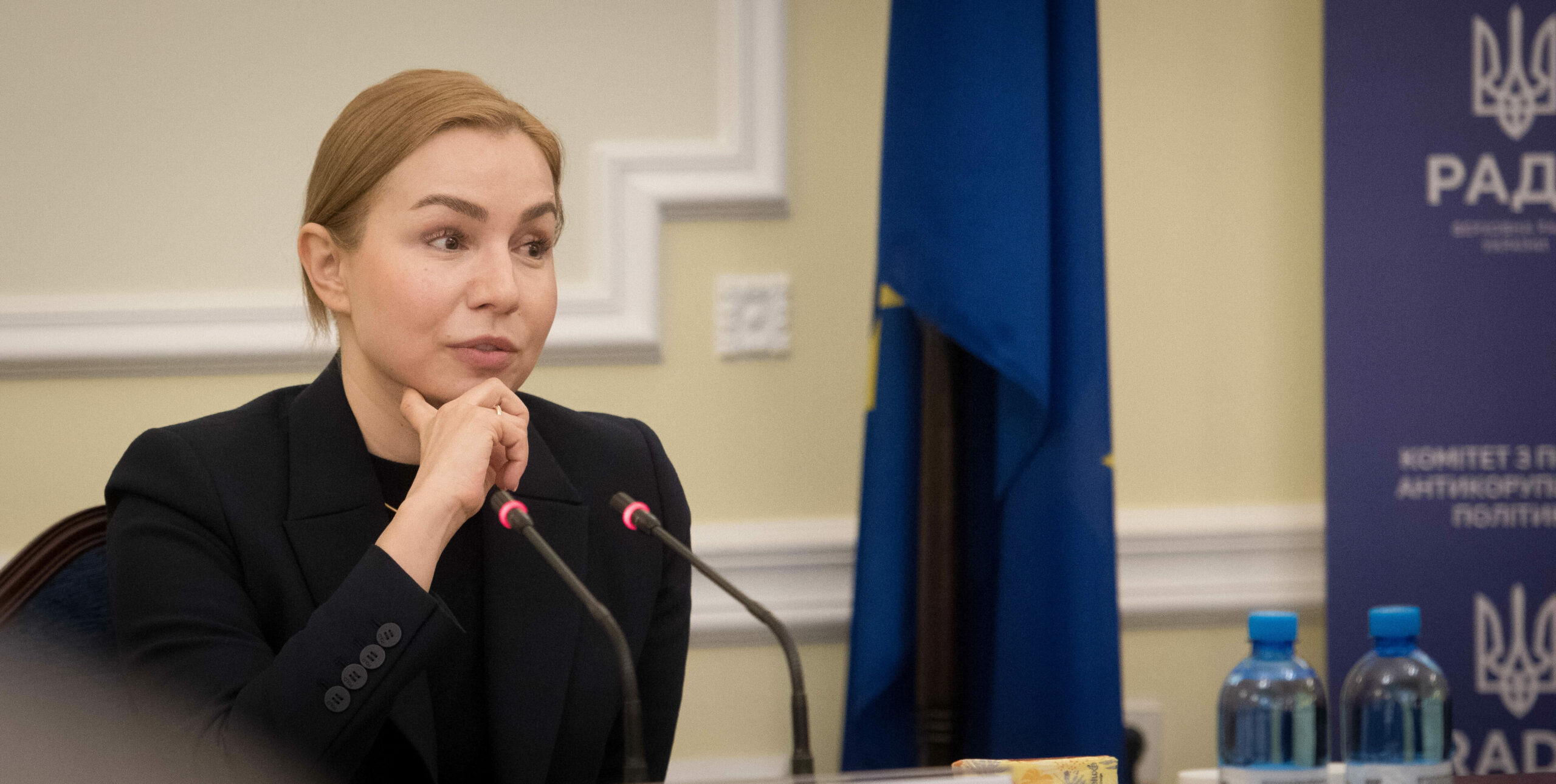
Anastasiia Radina, Ukraine's leading anti-corruption MP. Credit: Courtesy by the office of Anastasiia Radina MP
"No other country has embarked on simultaneously fighting a war and continuing domestic reforms. We were able to do this," Radina says, speaking on a video call from her office in Kyiv, a Ukrainian flag is visible to her side.
She has been working on the issue for ten years, starting from the ashes of the Revolution of Dignity in 2014, which saw Ukrainians once again band together in the streets to call out Kremlin-backed corruption.
Not scared of the truth
What becomes clear in conversation with Ms Radina, is that the fight against corruption holds as much importance as stopping Russia’s invasion – particularly in the context of EU integration. Indeed, it is this fight for democracy which mobilises Ukrainians against the invader and gives them the strength to continue.
Prior to becoming a politician, Radina was among the leaders of one of Ukraine’s top anti-corruption NGOs, and was invited to join President Volodymyr Zelenskyy’s insurgent party Servant of the People before the election in 2019 to continue her work from inside the government – even if she considers herself to be non-partisan.
"My first interaction with Zelenskyy was when he was meeting experts in different domains, including anti-corruption experts, during his presidential campaign. And this is basically how it all started, with us sharing ideas with him on a possible anti-corruption agenda, and him being on the same page."
Radina says she understood at the time that a position in parliament was a better opportunity to promote her anti-corruption agenda that she was working on already, and it has proved to be a successful strategy.
"By now probably 90% of my anti-corruption agenda back in 2019 has been adopted by the parliament," Radina says, before stressing that this does not mean the agenda is finished and that many new issues have come up since.
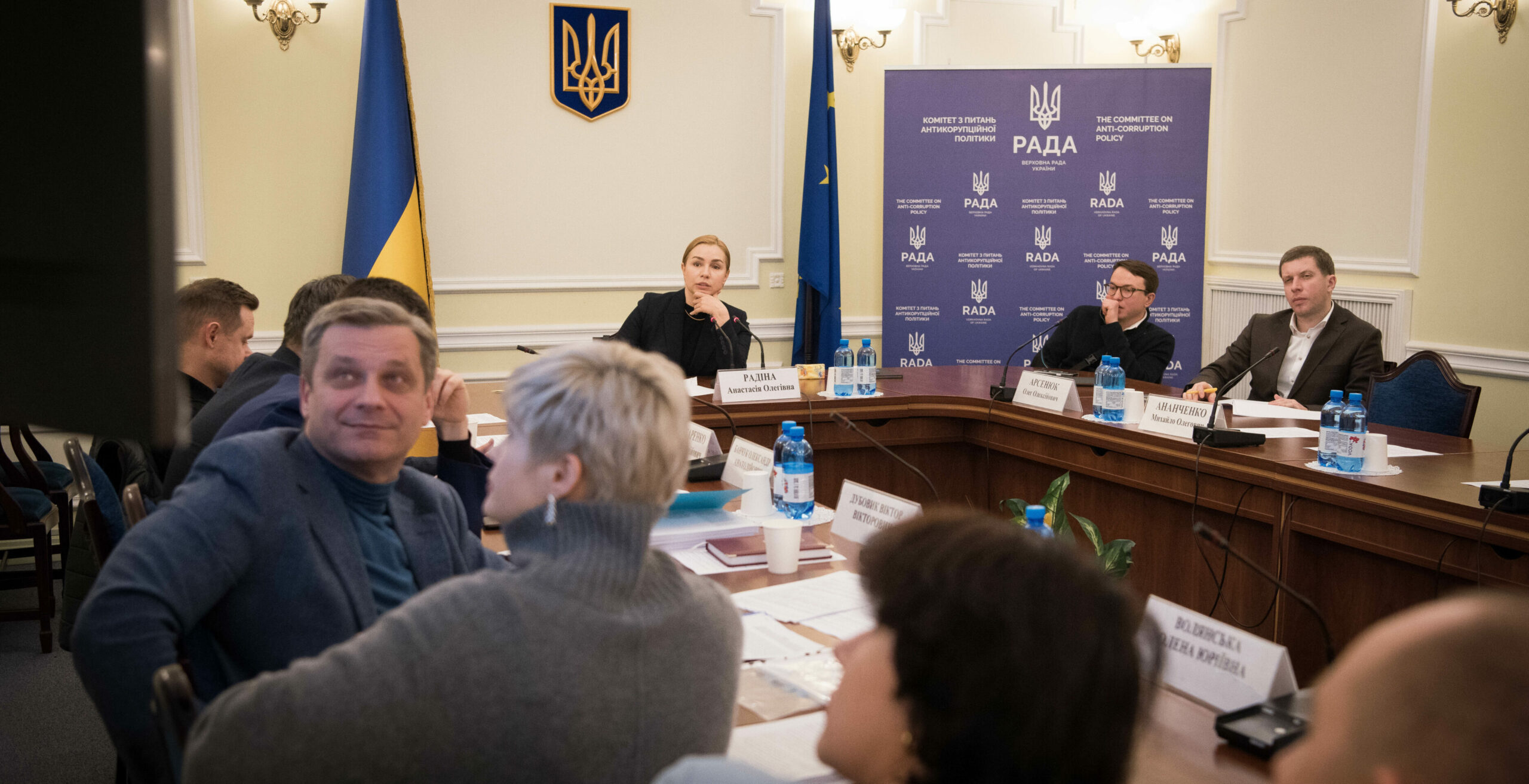
Ukraine's Anti-Corruption Committee in the Verkhovna Rada. Credit: Office of Anastasiia Radina MP
Yet her work is not without challenge from powerful actors with vested interests. She is often the subject of defamation campaigns on anonymous Telegram channels. "You just learn to not pay attention to this," Radina says. Her approach to anti-corruption does not attempt to hide the truth. Instead, this forms part of her strategy.
"I’m not here to tell you that there are no vested interests that still try to somehow manipulate public opinion or use different, dirty methods to pressure those fighting for reforms," Radina continues. "This still has its place in political culture in Ukraine. Does this make me and other pro-reform colleagues abolish the agenda? Absolutely not."
Eggs embezzlement
On the day of the interview, Radina tells us it's a "happy day". Ukraine’s leading anti-corruption bodies had just charged a number of individuals in a case related to alleged inflated prices in military procurement for food, notably eggs.
The case involves a former head of department at the Defence Ministry, an owner of supplier companies, two heads of supplier companies, and one more individual, all accused of embezzling $19 million.

Ukrainian artillerymen load a BM-21 Grad multiple rocket launcher near Izyum, south of Kharkiv, on June 11, 2022 amid Russian invasion of Ukraine. Credit: Anatolii Stepanov / AFP / Belga
"This is a very important case for me personally because it was one of the first cases which came about after the full-scale invasion in February 2022. Our parliamentary anti-corruption committee started taking expeditious and complex steps to resolve it," Radina says. The case began after a group of journalists published an investigation, and was attributed to one of the reasons for the dismissal of Ukraine’s Defence Minister Oleksii Reznikov.
Cases like this would not be possible without the establishment of the High Anti-Corruption Court in 2017, but in name only. A draft law finally unblocking the Court's operation was one of the first bills she presented to parliament in 2019. It is one of the achievements that Radina feels most proud of. Moreover, it has led to the conviction of 28 judges. In the twenty years before that, there had been only two.
Other examples of successes include changing the law on public construction procurement amid inflated prices and a lack of transparency, and the restoration of the online system of asset disclosure for public officials, which includes ministers and prosecutors of all levels. When discrepancies in asset declarations are found, there are mechanisms to now deal with this.
Weaponising corruption
Radina stresses that the fight against corruption, in terms of implementing reforms, is barely ten years old. But the popular movement is older, stretching back to 2004’s Orange Revolution, a peaceful mobilisation in the aftermath of the country’s presidential election mired in massive corruption and electoral fraud, once again in relation to a Kremlin-backed candidate.
"I think it is also crucial that we recognise the role of Russia in weaponising corruption. Russia has always been keen on using corruption – especially in energy systems – as a tool to pursue their interests," she explains.
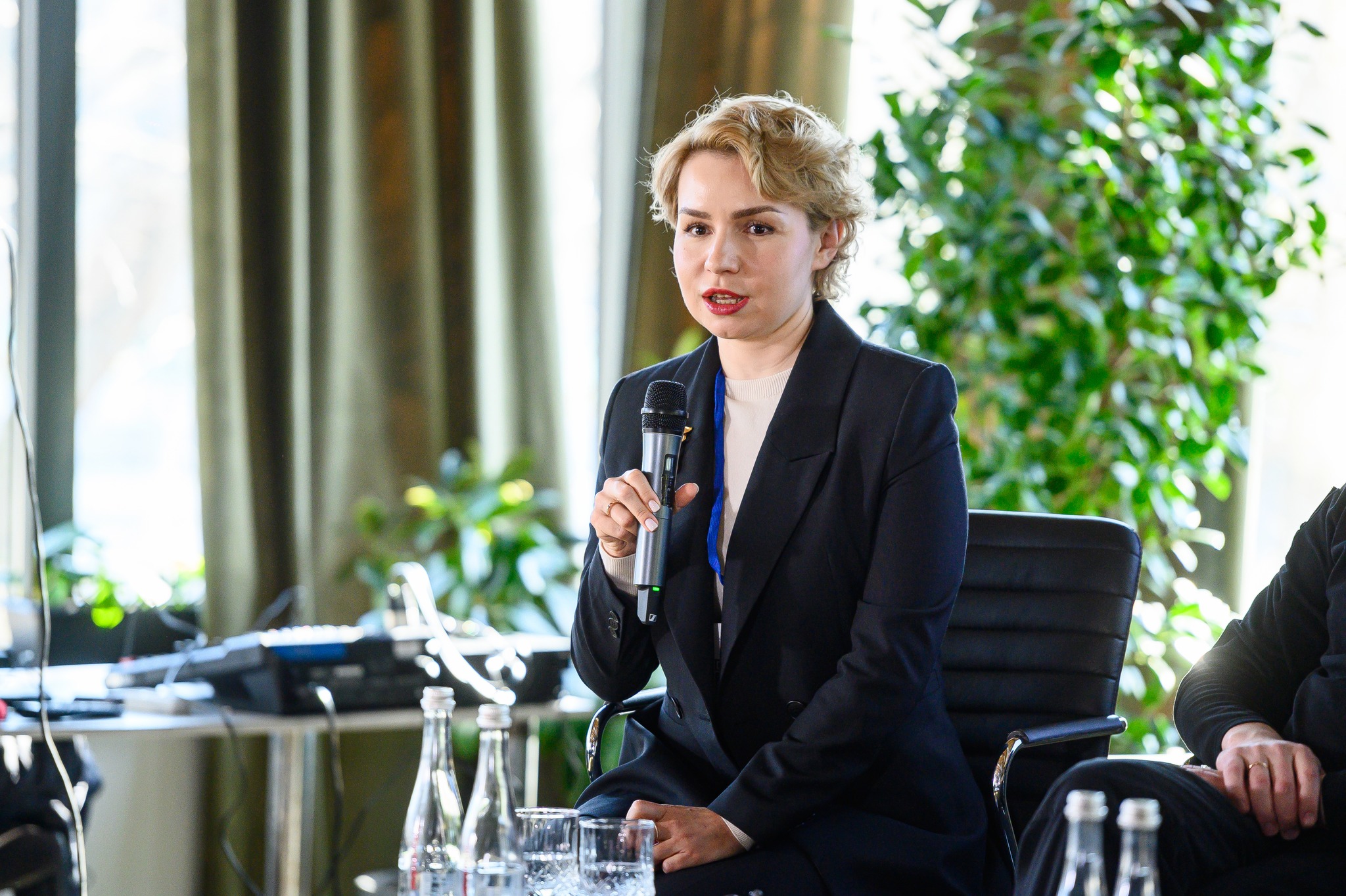
Ukrainian MP Anastasiia Radina. Credit: Office of Anastasiia Radina MP
The crucial moment of change for Ukraine came back in 2014 after the Revolution of Dignity when pro-Russian then President Yanukovych left the country and fled to Moscow. Radina explains that the fight for anti-corruption reform only truly began that year, but they have “accomplished a lot” given that they began from "below zero".
"We built institutions from scratch, tried to abolish the legacy of the old prosecutorial system and build anti-corruption institutions from afresh," Radina explained. "Not only did we manage to build them, stock them, get them up and running – but also to got them to produce a track record of cases that send a message across the system that there are no untouchable public officials anymore."
It is these sorts of results which infuriated the Kremlin, pushing Russia to launch its first attack on the Donbas in 2014 and later in the full-scale invasion in 2022. Radina says she remembers when a few days before the full-scale invasion, Putin mentioned anti-corruption institutions of Ukraine by their name.
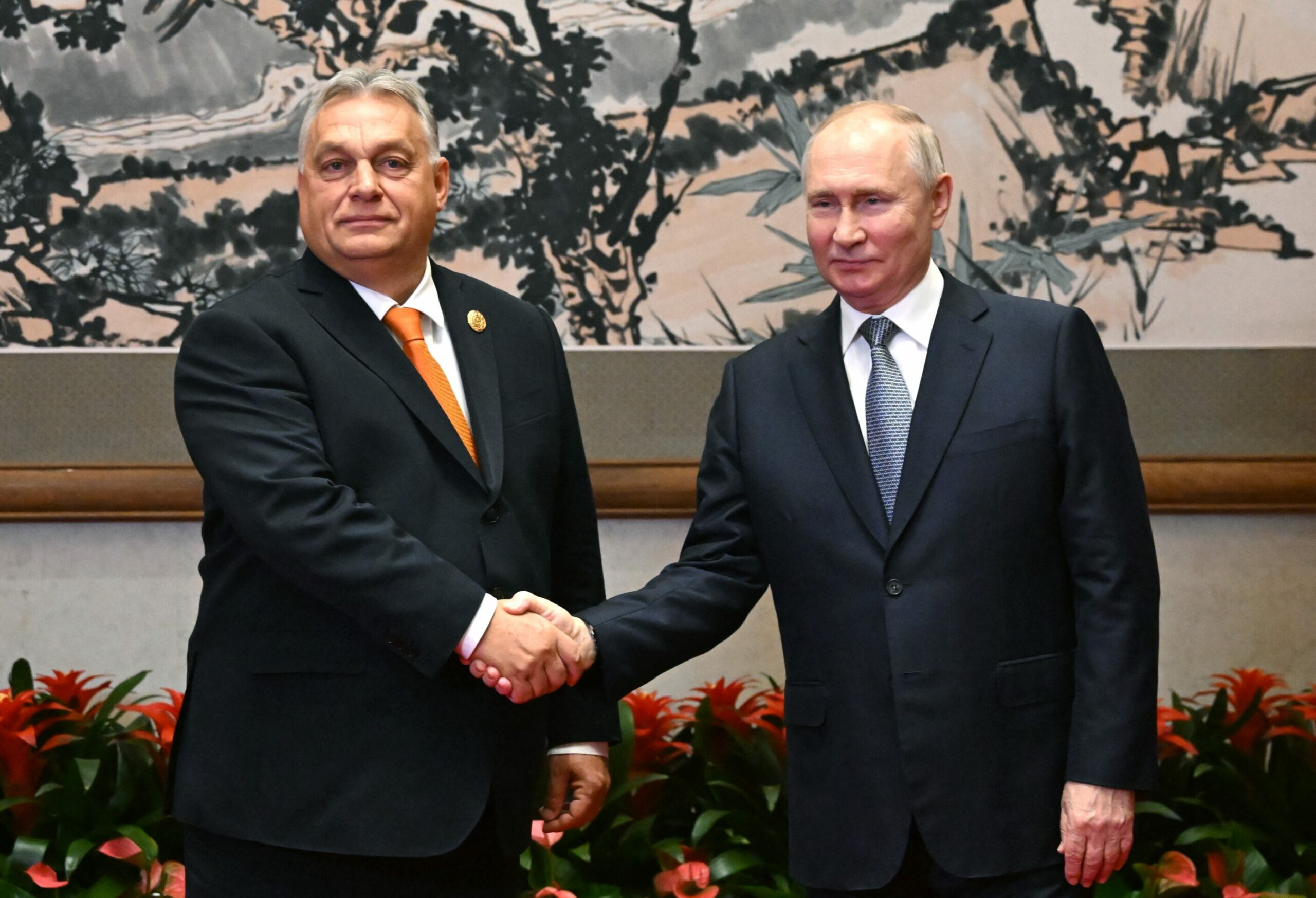
Russia's President Vladimir Putin meeting with Hungarian Prime Minister Viktor Orban on the sidelines of the Third Belt and Road Forum in Beijing on October 17, 2023. Credit: AFP / Belga
"It is still my firm belief that the fact that Ukraine actually demonstrated successes in breaking away from Russia and transforming the country for close integration with the EU – right on Russia’s doorstep," Radina says. "That has been part of the reason why Russia decided to invade."
Russia’s use of disinformation during the war, often attacking the legitimacy of Ukraine’s institutions, has challenged Radina’s work. How to speak about anti-corruption efforts and outstanding issues in Ukraine, while Russia weaponises them to shatter trust and make false claims about the country?
Summer election?
Since the arrival of the Trump administration, Ukraine has also been victim of disinformation at the hands of the White House – including the infamous quip that Zelenskyy was “a dictator, without elections”. While recent reports suggested that the Ukrainian president was lining up a summer poll, the reality of holding an election in war time is improbable.
“The democratic nature of Ukraine is what keeps the people of Ukraine motivated to continue our fight. At the same time, we need to make sure that those elections can accommodate people on the front lines, as much as people who were forced to leave Ukraine, about five to seven or eight million of Ukrainians abroad.
For Radina, those who are paying the highest price basically for the freedom of Ukraine, those in the military, should have a right to vote. "And the question here is, how can we accommodate this?"
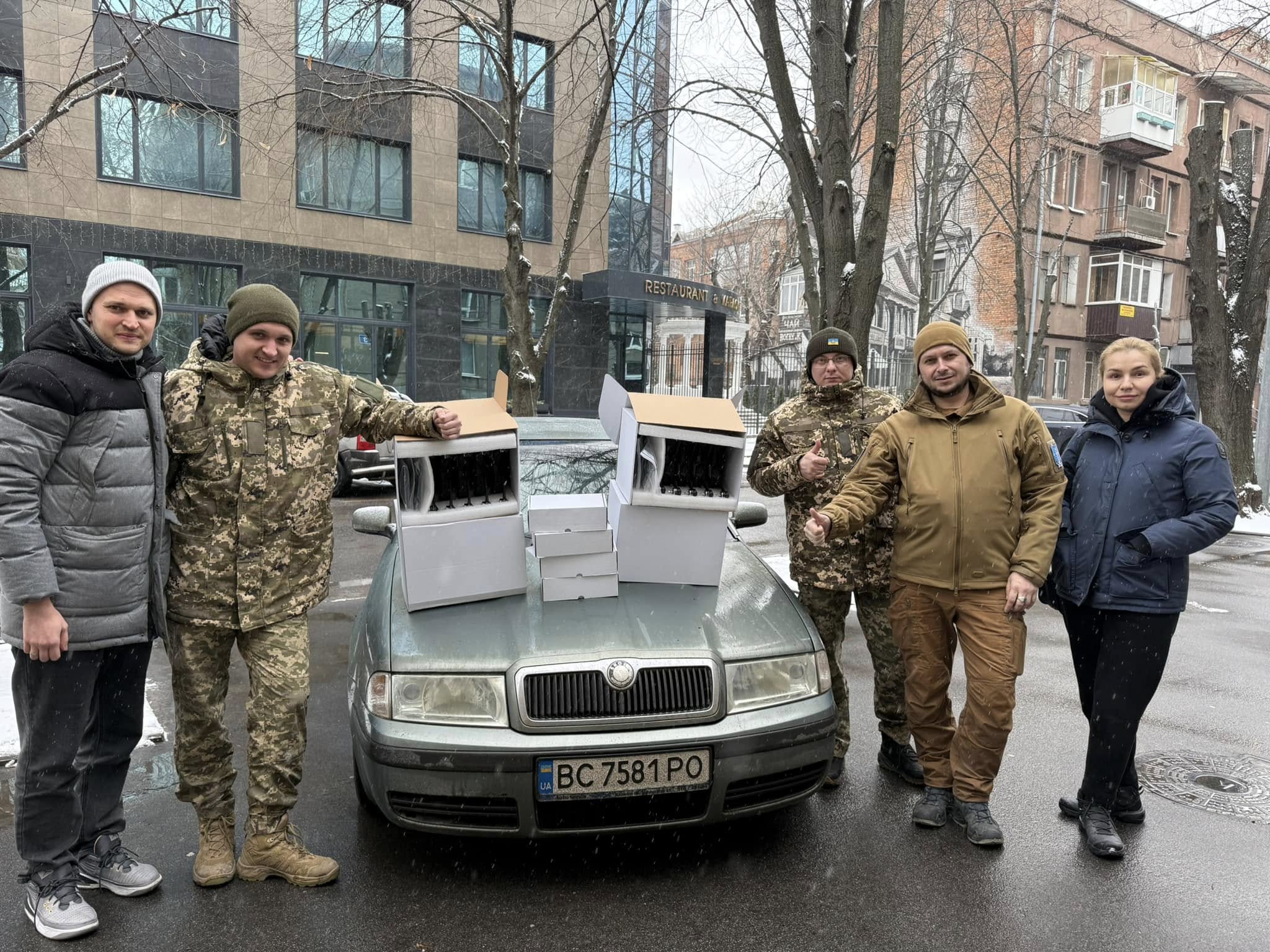
A trip to deliver FPV drones to the frontlines with fellow MP. Credit: MP Andrii Zhupanyn
As someone who recognises holding fair elections as an important aspect of her work, Radina underlines that holding them during war has obvious logistical challenges.
It is vital to ensure that people "defending their motherland" can not only vote but also campaign, and whether an election held in such conditions would be recognised internationally. "It is unacceptable if such a large part of population might effectively be disenfranchised from voting," Radina says.
Either way, it is clear that for Ms Radina, Russia does not get to decide when the country holds elections, nor does it get to decide who is the president of Ukraine, referencing recent comments from the Kremlin.
“We know from experience and history that concessions to Russia do not work. Agreements with Russia without effective security guarnatees do not work. The only thing that works is giving Russia a strong message that they cannot win” – whether that is on the battlefield or in the fight for anti-corruption.

